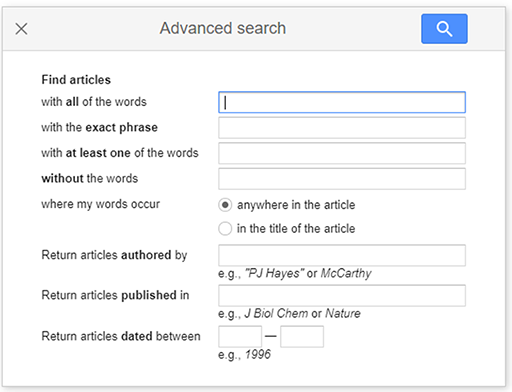4 Employing filters
Applying filters to your results set allows you quickly to reduce the numbers of returned hits. A date limiter can be particularly useful if the purpose of your search is to keep abreast of the most recent research in a field, but Google Scholar allows you to use several different filters. You can select particular authors or publications, for instance. If you think that the search is one that you will want to repeat in the future, you can also create an email alert for any new entries using the icon in the left column.
Crucially, the site will give you direct links to full content on the right-hand side if you have access to them. For open access content, these should appear regardless, but that is only a small fraction of total published secondary sources. For other content, you will need to have set up a Google Scholar account and linked it (with the same email address) to another account that provides you with access. A JSTOR account (detailed in the next section) should link to the Scholar search engine, and so should a library account, if you have one, with your former university.
The Google Scholar account also allows you to save references in a feature called ‘My library’, by clicking on the star icon beneath each result in the list. That said, although it is likely to be the first place to search to get a sense of the terrain of scholarship in a particular field, Google Scholar can be daunting, especially for students. If you are unfamiliar with using Google Scholar, we would recommend that you spend some time acquainting yourself with it before guiding your students to the resource.
Despite Google Scholar being at present the only search tool that has such a global reach, its tendency to produce a glut of ‘hits’ and the difficulty in assessing individual articles means that, for students at least, it should be used with considerable caution. There are many other databases available that will offer more focused, or more readily accessed, content. Most of these use the same principles for searching secondary scholarly literature as Google Scholar, and search techniques and tools (such as Boolean operators) can be adapted to most of them. Of these, the most useful is probably JSTOR.

